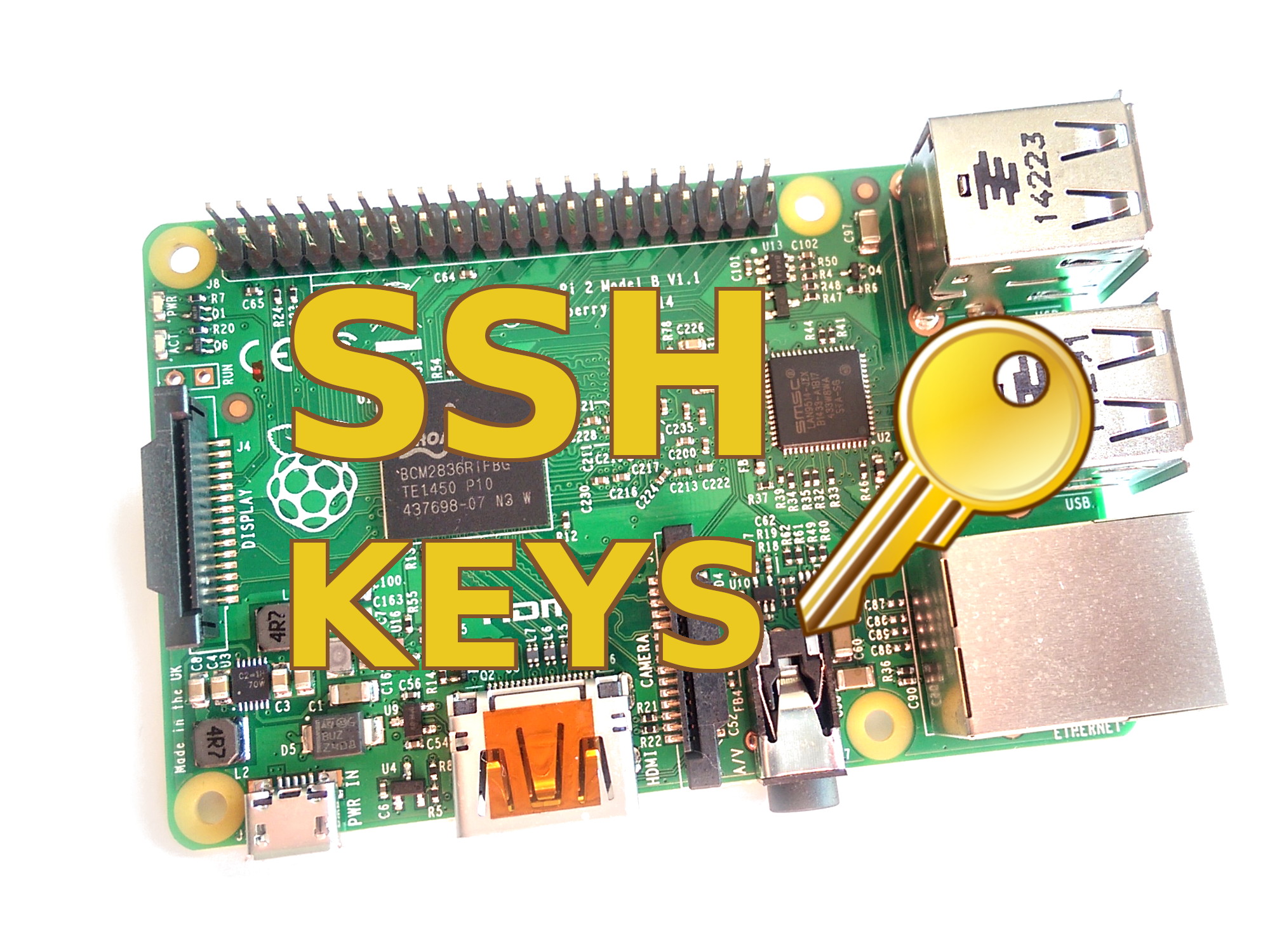Are you looking for a reliable way to manage your Raspberry Pi devices remotely? RemoteIoT platform SSH Raspberry Pi download free is the perfect solution for you. This platform allows you to access and control your devices from anywhere in the world, ensuring seamless connectivity and enhanced productivity. In this article, we will explore the features, benefits, and step-by-step guide to using RemoteIoT with your Raspberry Pi. RemoteIoT is a cloud-based platform designed to simplify remote device management, especially for IoT projects. Whether you're a hobbyist or a professional developer, this platform offers the tools you need to manage your devices efficiently.
The demand for remote access solutions has grown significantly as more individuals and businesses adopt IoT technologies. Raspberry Pi, being one of the most popular single-board computers, is widely used in IoT projects. However, managing these devices remotely can be challenging without the right tools. RemoteIoT addresses this issue by providing a secure and user-friendly platform for SSH access to Raspberry Pi devices. With its free download option, RemoteIoT is accessible to everyone, regardless of budget constraints.
In this article, we will delve into the details of RemoteIoT, its features, and how you can download and set it up for your Raspberry Pi. We will also discuss the importance of secure remote access and how RemoteIoT ensures the safety of your devices. By the end of this guide, you will have a clear understanding of how to leverage RemoteIoT to maximize the potential of your Raspberry Pi projects.
Read also:Unblocked Retro Bowl 77 Play Now A Comprehensive Guide For Ultimate Gaming Experience
Table of Contents
Introduction to RemoteIoT
RemoteIoT is a cutting-edge platform designed to simplify remote device management, particularly for IoT projects. It provides a secure and efficient way to access and control devices like Raspberry Pi from anywhere in the world. The platform is cloud-based, ensuring that users can manage their devices without the need for complex configurations or additional hardware.
One of the standout features of RemoteIoT is its support for SSH (Secure Shell) access. SSH is a protocol that allows secure communication between devices over an unsecured network. By enabling SSH access, RemoteIoT ensures that users can remotely manage their Raspberry Pi devices with confidence. This is particularly important for IoT projects where security and reliability are paramount.
RemoteIoT is compatible with a wide range of devices, including Raspberry Pi models such as Raspberry Pi 4, Raspberry Pi 3, and Raspberry Pi Zero. Its versatility makes it an ideal choice for both beginners and experienced developers. Whether you're working on a home automation project or a large-scale industrial IoT solution, RemoteIoT provides the tools you need to succeed.
Features of RemoteIoT
RemoteIoT offers a variety of features that make it a powerful tool for managing Raspberry Pi devices remotely. Below are some of the key features that set RemoteIoT apart from other remote access solutions:
Secure SSH Access
RemoteIoT provides secure SSH access to Raspberry Pi devices, ensuring that your data and communications are protected from unauthorized access. SSH encryption protocols prevent data breaches and ensure the integrity of your IoT projects.
Cloud-Based Platform
As a cloud-based solution, RemoteIoT eliminates the need for additional hardware or complex configurations. Users can access their devices from any location with an internet connection, making it ideal for remote work and IoT deployments.
Read also:Movierulz Ullu Latest Movies Web Series A Comprehensive Guide
User-Friendly Interface
RemoteIoT features an intuitive interface that is easy to navigate, even for beginners. The platform provides clear instructions and guides to help users set up and manage their devices efficiently.
Multi-Device Management
With RemoteIoT, you can manage multiple Raspberry Pi devices from a single dashboard. This is particularly useful for large-scale IoT projects where centralized control is essential.
Free Download Option
RemoteIoT offers a free download option, making it accessible to hobbyists, students, and small businesses. The free version includes essential features, while premium options are available for advanced users.
Real-Time Monitoring
The platform provides real-time monitoring of device status and performance metrics. This allows users to identify and resolve issues quickly, ensuring the smooth operation of their IoT projects.
How to Download and Install RemoteIoT
Downloading and installing RemoteIoT on your Raspberry Pi is a straightforward process. Follow the steps below to get started:
Step 1: Visit the RemoteIoT Website
Go to the official RemoteIoT website and navigate to the download section. Here, you will find the download link for the platform. Ensure that you are downloading the version compatible with your Raspberry Pi model.
Step 2: Download the Installation File
Click on the download link to save the installation file to your computer. The file is usually in a compressed format, such as .zip or .tar.gz. Once downloaded, transfer the file to your Raspberry Pi using a USB drive or via SSH.
Step 3: Install RemoteIoT
Extract the installation file and open the terminal on your Raspberry Pi. Navigate to the directory where the file is located and run the installation command. Follow the on-screen instructions to complete the installation process.
Step 4: Configure RemoteIoT
After installation, configure the platform by entering your account details and setting up SSH access. RemoteIoT will guide you through the configuration process, ensuring that your devices are ready for remote management.
Step 5: Test the Connection
Once configured, test the connection by accessing your Raspberry Pi remotely through the RemoteIoT dashboard. Verify that all features are functioning correctly and that you can manage your device securely.
Setting Up SSH Access on Raspberry Pi
SSH access is a critical component of remote device management. Below is a step-by-step guide to setting up SSH on your Raspberry Pi:
Step 1: Enable SSH on Raspberry Pi
To enable SSH, open the Raspberry Pi configuration menu by typing sudo raspi-config in the terminal. Navigate to "Interfacing Options" and select "SSH." Choose "Yes" to enable SSH access.
Step 2: Update Your System
Ensure that your Raspberry Pi is up to date by running the following commands in the terminal:
sudo apt update sudo apt upgrade
This will install the latest security patches and software updates.
Step 3: Set Up a Static IP Address
To ensure consistent connectivity, configure a static IP address for your Raspberry Pi. Edit the DHCP configuration file by typing sudo nano /etc/dhcpcd.conf and add the following lines:
interface eth0 static ip_address=192.168.1.100/24 static routers=192.168.1.1 static domain_name_servers=8.8.8.8
Save and exit the file, then restart the network service.
Step 4: Generate SSH Keys
For added security, generate SSH keys by running ssh-keygen in the terminal. This will create a public and private key pair that can be used for authentication.
Step 5: Test SSH Access
Use an SSH client like PuTTY or the terminal to connect to your Raspberry Pi. Enter the IP address and credentials to verify that SSH access is working correctly.
Benefits of Using RemoteIoT
RemoteIoT offers numerous benefits for Raspberry Pi users, particularly those involved in IoT projects. Below are some of the key advantages:
Enhanced Productivity
With RemoteIoT, you can manage your Raspberry Pi devices from anywhere, eliminating the need for physical access. This saves time and increases productivity, especially for large-scale projects.
Improved Security
RemoteIoT uses advanced encryption protocols to ensure the security of your data and communications. This is crucial for protecting sensitive information in IoT applications.
Cost-Effective Solution
The free download option makes RemoteIoT an affordable choice for hobbyists and small businesses. Even the premium version offers excellent value for money compared to other remote access tools.
Scalability
RemoteIoT supports multiple devices, making it suitable for projects of any size. Whether you're managing a single Raspberry Pi or a network of devices, RemoteIoT can handle the task efficiently.
Real-Time Monitoring
The platform provides real-time insights into device performance, allowing you to identify and resolve issues quickly. This ensures the smooth operation of your IoT projects.
Security Measures in RemoteIoT
Security is a top priority for RemoteIoT, especially given the sensitive nature of IoT projects. Below are some of the security measures implemented by the platform:
End-to-End Encryption
RemoteIoT uses end-to-end encryption to protect data during transmission. This ensures that your communications remain private and secure, even over unsecured networks.
Two-Factor Authentication
The platform supports two-factor authentication (2FA) to add an extra layer of security. Users must provide a second form of verification, such as a code sent to their mobile device, to access their accounts.
Regular Security Updates
RemoteIoT regularly releases security updates to address vulnerabilities and protect against emerging threats. This ensures that the platform remains secure and reliable over time.
Access Control
The platform allows users to define access levels and permissions for different team members. This ensures that only authorized individuals can manage specific devices or perform certain actions.
Use Cases of RemoteIoT
RemoteIoT is a versatile platform with applications across various industries. Below are some of the most common use cases:
Home Automation
RemoteIoT can be used to manage smart home devices, such as lights, thermostats, and security systems. This allows users to control their homes remotely and automate routine tasks.
Industrial IoT
In industrial settings, RemoteIoT is used to monitor and control machinery, sensors, and other equipment. This improves efficiency and reduces downtime by enabling real-time monitoring and predictive maintenance.
Remote Education
Educators and students can use RemoteIoT to access and manage Raspberry Pi devices for remote learning. This is particularly useful for teaching programming, electronics, and IoT concepts.
Healthcare
In healthcare, RemoteIoT is used to manage medical devices and patient monitoring systems. This ensures that critical equipment remains operational and that patient data is securely transmitted.
Smart Agriculture
Farmers can use RemoteIoT to monitor soil conditions, weather patterns, and irrigation systems. This enables data-driven decision-making and improves crop yields.
Comparison with Other Remote Access Tools
While there are several remote access tools available, RemoteIoT stands out for its features, security, and ease of use. Below is a comparison with other popular tools:
TeamViewer
TeamViewer is a widely used remote access tool, but it lacks the IoT-specific features offered by RemoteIoT. Additionally, TeamViewer's pricing can be prohibitive for small businesses and hobbyists.
AnyDesk
AnyDesk provides fast and reliable remote access, but it does not support SSH access or multi-device management. RemoteIoT, on the other hand, offers both features, making it a better choice for IoT projects.
VNC Connect
VNC Connect is another popular tool, but it requires additional software and configurations

